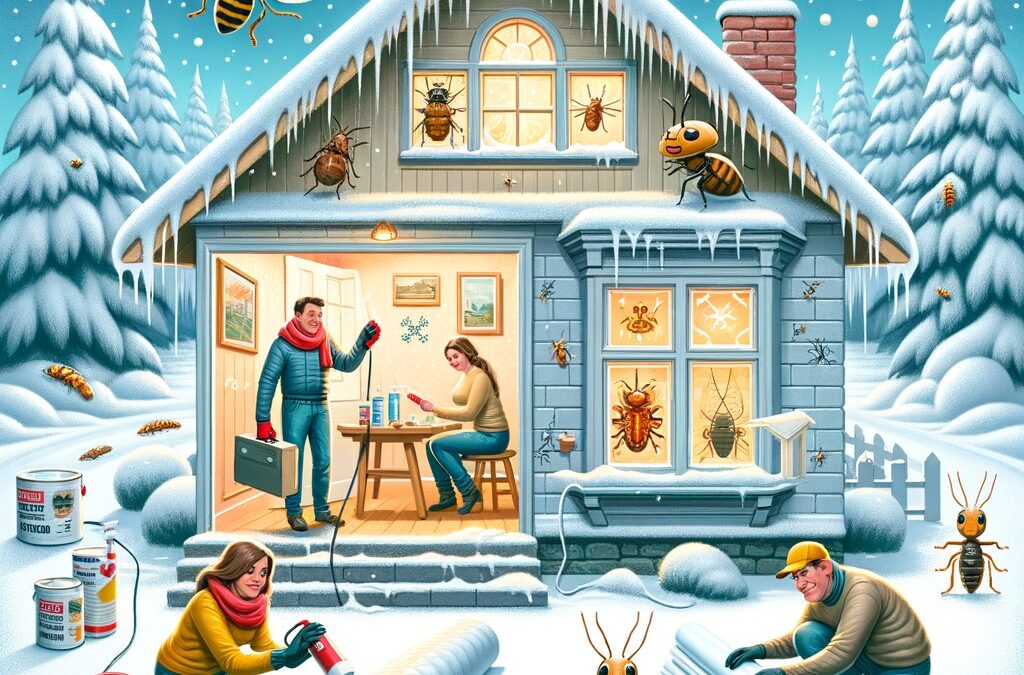1. Seal Up Cracks and Crevices
To keep the pests outside during winter, you need to block potential access points to your home. Inspect doors, windows, pipes, and other areas of your home that could have openings. After you spot any cracks or crevices, use an appropriate caulking material to seal them off. Make sure to address any gaps in pipes and vents as well since they might be the easiest way for bugs to sneak into your home.
2. Clean the Outer Portion of Your Home
Cleaning the exterior of your home can help you prevent pests from getting inside during the winter. Sweep, mop, and vacuum your garden area, patio, and deck frequently, and make sure to keep your landscaping neat and trimmed. This is especially important during the fall season when leaves have started falling, and the general untidiness of your outdoors might attract bugs and rodents.
3. Keep Your Home Well Ventilated
Good air circulation is crucial in keeping your home pest-free. Proper ventilation helps to keep bugs and other pests out. Besides, it helps in preventing moisture buildup, which attracts insects like termites. Ensure that your home has adequate ventilation by adding vents in your basement, attic, or other parts of the house. Using door and window screens can keep insects from flying or crawling into your house.
4. Check Your Firewood
Firewood and other materials brought inside the home during winter can transport pests like ants, beetles, and termites. Before moving any logs or firewood indoors, ensure that you inspect them first for any signs of bug infestation. Ideally, you should stack firewood at least 20 feet away from your house, and cover it with a wire mesh to prevent any insect infestation.
5. Store Food Safely
Food debris is a magnet for pests. Uncontained food, especially rich in sugar and grains, should be stored in airtight containers, or in your refrigerator or freezer. Sweeping and mopping your floors regularly also helps to clean up any food crumbs or debris that could attract insects.
6. Use Appropriate Pesticides
Pesticides can serve as an effective pest deterrent, but you must use them with caution and follow the instructions on the label. Some insects may require multiple applications, so it’s vital to read and follow all instructions carefully to avoid overusing the product or placing it incorrectly.
7. Install More Insulation
Rodents and insects alike might use your insulation as a way to enter your home. Therefore, you should ensure that there are no gaps in your insulation, and that it’s sealed properly. With that said, be mindful of the specific insulation materials you use, as some pests, like rodents, might chew through weak materials like foam boards.
8. Use Mesh Screens
Mesh screens are an excellent way to keep insects out of your home. You can use them on windows and doors, and ventilation holes. They can also stop larger pets, like squirrels, from making their way indoors.
9. Install a Weather Stripper
Weather strippers can minimize gaps between doors and walls and prevent warm air from escaping your home. This helps to keep your home’s interior warm and comfortable during winter while keeping bugs and rodents outside.
10. Call a Professional Pest Control Company
If your pest problems persist, you may have to seek the help of a professional pest control company. Experienced exterminators have the knowledge and equipment to identify any pest problems and provide effective long-term solutions to protect your home from infestations.

